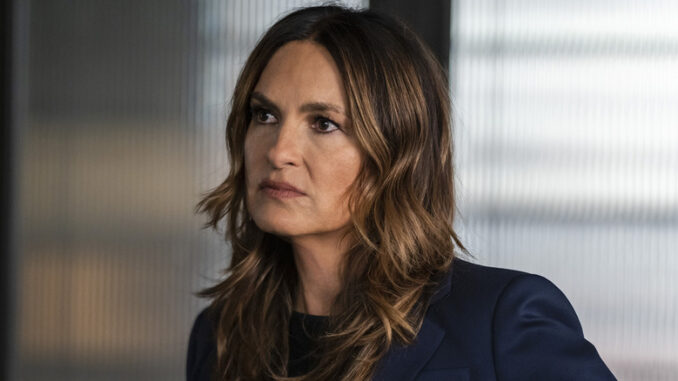
The Unseen Battleground: How a Pixie Cut Almost Shattered an Icon
Few characters are as etched into the collective consciousness as Olivia Benson. For over two decades, Mariska Hargitay has embodied the stoic strength, unwavering empathy, and relentless pursuit of justice that defines the Lieutenant (and now Captain) on Law & Order: SVU. Her image – a pragmatic cascade of brunette waves, professional yet approachable – became synonymous with the character’s enduring power. Yet, beneath the veneer of this familiar icon, there lurks a fascinating, almost mythological tale: the time Mariska Hargitay’s decision to embrace a pixie cut nearly cost her the very role she was born to play. This wasn’t just about a haircut; it was a silent battle over control, identity, and the surprising fragility of a well-oiled television machine.
Olivia Benson’s hair, though rarely the subject of in-depth discussion, was always a silent costume piece. It was practical, pulled back during intense interrogations, framing a face etched with the weight of human suffering, yet always retaining a certain feminine resilience. It signaled stability, a visual anchor for viewers who tuned in week after week, year after year, expecting the comfort of the familiar. Her longer hair was part of the unspoken contract with the audience, a subtle reinforcement of her character’s dependable, nurturing, yet formidable presence. It was, in essence, Olivia.
Then came Mariska’s personal whisper of rebellion. After countless seasons, after pouring her soul into a demanding role that often mirrored the darkest aspects of humanity, Hargitay desired a change. A radical, transformative chop: the pixie. For her, it was likely a personal renaissance, a shedding of weight both literal and metaphorical. A declaration of her own evolving identity, separate from the relentless demands of a character who had, in many ways, subsumed her. It was a bold, confident cut that spoke to a woman comfortable in her own skin, unburdened by external expectations of conventional beauty.
But in the highly controlled ecosystem of network television, such personal expressions can send seismic tremors through the corporate calculus. The moment Hargitay unveiled her new look, the alarm bells began to clang. The network and producers, accustomed to the iconic Olivia Benson brand, saw not a personal triumph, but a potential crisis. Their concerns were multi-layered and commercially driven: Would audiences recognize her? Would it detract from the character’s gravitas or professional image? Would it alienate the legions of loyal viewers who had invested decades in the familiar Benson? The fear was palpable: a change in hair could be perceived as a change in character, a destabilizing element in a show built on consistency and formula.
The whispers quickly escalated into a near-ultimatum. The message was clear, if unspoken: Olivia Benson’s hair was sacred iconography, and Mariska Hargitay, the actor, could not unilaterally alter it. The job, the very role that had defined a generation and brought her immense success and personal fulfillment, hung precariously in the balance. It was a stark reminder of the often-invisible power dynamics at play in Hollywood, where even a superstar’s personal choices can be deemed a threat to a multi-million dollar franchise.
Ultimately, Hargitay’s enduring professionalism and the sheer weight of her talent prevailed. Whether through a compromise involving wigs, clever camera angles, or simply the realization that Hargitay’s performance transcended mere aesthetics, the storm passed. The pixie cut did make appearances on screen, often styled in ways that softened its edges, or eventually growing out into a chic, shorter bob. The character, unblemished by the internal network drama, continued her relentless pursuit of justice.
The incident of Mariska Hargitay’s pixie cut serves as a potent illustration of the unseen battles fought behind the scenes of our favorite shows. It highlights the tension between an actor’s personal autonomy and the rigid demands of a brand, the precarious balance between continuity and creative freedom. More profoundly, it underscores the surprising power of something as seemingly trivial as a haircut to symbolize control, identity, and the silent negotiation of power within an industry that often prioritizes image above all else. In the end, Olivia Benson, and Mariska Hargitay, endured – a testament to the fact that true strength, like true talent, runs far deeper than any haircut.
